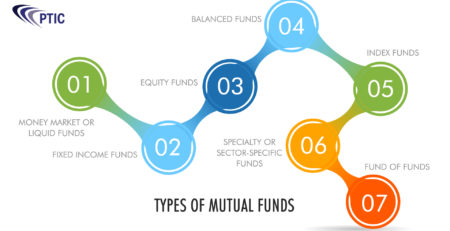In 2025, investing in mutual funds not only helps grow your wealth but also offers attractive tax-saving opportunities. With proper planning and guidance from trusted financial advisors like PTIC INDIA, you can maximize returns while efficiently managing your tax liabilities.
This article explores how mutual funds offer tax advantages, the types of schemes eligible for deductions, and how PTIC India helps investors create tax-smart portfolios.
1. Equity Linked Saving Schemes (ELSS): The Star Tax-Saver
One of the most popular tax-saving options under Section 80C of the Income Tax Act is ELSS (Equity Linked Saving Scheme).
Tax Deduction: Up to ₹1.5 lakh annually under Section 80C
Lock-in Period: Only 3 years (shortest among all 80C options)
Returns: Market-linked, with potential for long-term capital growth
Taxation: Gains above ₹1 lakh taxed at 10% (LTCG)
By investing in ELSS through PTIC India, you benefit from expert fund selection and personalized guidance for consistent returns.
2. Taxation on Mutual Fund Gains
Mutual funds are taxed differently based on the fund type and holding period:
Equity Mutual Funds:
Short-Term Capital Gains (STCG): Taxed at 15% if held for less than 12 months
Long-Term Capital Gains (LTCG): Taxed at 10% beyond ₹1 lakh (after 12 months)
Debt Mutual Funds (Post-April 2023):
As per the new rule, indexation benefits have been removed.
Now taxed as per individual income tax slab, regardless of holding period.
Despite changes in tax laws, debt funds remain vital for portfolio stability and liquidity. At PTIC INDIA, we help you balance risk and tax efficiency.
3. Systematic Investment Plan (SIP) & Tax Impact
Each SIP installment in an ELSS fund is treated as a new investment with a 3-year lock-in. Regular investments help average out market volatility while qualifying for tax benefits under Section 80C.
A tax-efficient SIP plan with PTIC India ensures discipline in investing while keeping your tax planning on track.
4. Dividend Plans and Taxation
As per current rules, dividends from mutual funds are taxable in the hands of investors. They are added to your income and taxed as per your slab rate. Choosing growth plans over dividend options can be more tax-efficient in the long run.
5. How PTIC India Makes a Difference
With 27+ years of expertise in wealth management, PTIC INDIA offers:
✅ Customized Mutual Fund Portfolios
✅ Guidance on ELSS, Equity & Debt Funds
✅ Efficient Tax Planning Strategies
✅ Interactive Investment Tools
✅ Transparent Reporting and Investor Education
Optimize Returns. Minimize Taxes. Invest Smart with PTIC India
Secure your financial future with PTIC INDIA, your trusted mutual fund distributor. We offer personalized investment strategies across equity and debt schemes to help you achieve goals like retirement planning, children’s education, or wealth creation—while saving on taxes.
💡 With over 6000+ happy investors and a legacy of trust, we are committed to turning your dreams into reality.
📞 Call us now for expert investment advice.
🌐 Visit: PTIC INDIA to explore the best financial opportunities.
👉 Follow us for the latest updates on mutual funds and tax-saving tips.








